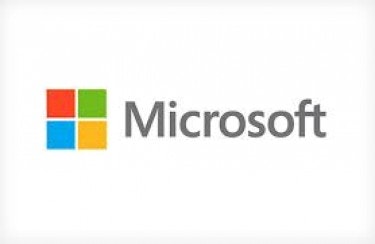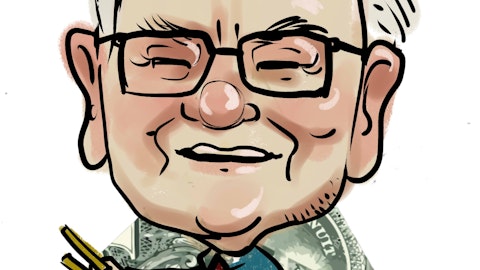Recently, The Economist published an article titled “Microsoft blues.” The main theme of that article is that Microsoft Corporation (NASDAQ:MSFT) has always been late in the race to innovation mainly due to its huge success in the field of operating systems. Put it differently, it’s Microsoft’s success that is the cause of its long-term problems. Specifically,
“Microsoft knows only too well that the PC market is stagnating as people migrate to hand-held devices. Sales of PCs have shrunk for the past four quarters—they were 13.9% lower in the first three months of this year than in the first quarter of last year. But sales of licenses for Windows still provide the firm with about half of its profits. The company’s dominant position in operating systems meant that it was slow to enter the internet-search market in the 1990s. It has been equally slow to enter the hand-held market: Windows has less than 5% of the global smartphone market, compared with Google Android’s 70% and Apple’s 20%. It has less than 8% of the tablet market.”
The Economist concludes the article by likening Microsoft Corporation (NASDAQ:MSFT)’s Windows 8 to the experiment by The Coca-Cola Company (NYSE:KO) with “New Coke” back in the 80’s. According to the writer of the article, Windows 8 is bound to fail tremendously just like the “New Coke” failed and forced Coca-Cola to rethink its marketing strategies.
I respectfully disagree with The Economist on its take on Microsoft for two main reasons.
Reason #1: Backward looking statements
I believe that the argument made by The Economist is flawed because it’s mainly backward looking rather than forward looking. The Economist focuses on what Microsoft Corporation (NASDAQ:MSFT) has not done, i.e. enter the tablet market early and recognize the shift to mobile computing, but that was also true two years ago. The newspaper utterly ignores the tremendous change that Microsoft has undergone in the course of the past two years.
First, its partnership with Nokia on the Lumia mobile phone with Windows OS is beginning to show early signs of success. Mass mobile sellers like Verizon Communications and Sprint are reporting stronger sales of Windows-based mobile phones.
In particular, analyst Mary-Ann Parlato of Kantar said, “For Verizon, Windows’ share rose from 0.2% in the three months ending April 2012 to 6.8% by the period ending April 2013. At Sprint, they continued to reap share increases thanks to their iOS offering- iOS sales share on Sprint grew from 33.4% to 38.4% over the last year.” That’s a remarkable increase in sales. On a personal note, I must also confess that I’ve had the opportunity to try the Lumia myself and found it to be an extremely appealing and user-friendly phone.
Second, Microsoft Corporation (NASDAQ:MSFT) has been making solid progress on the tablet front as well. Its partnership with Barnes & Noble, Inc. (NYSE:BKS) on the Nook adds a lot of value to Microsoft by bringing a reading ecosystem for its Surface tablets and other Windows 8 devices. In addition, such partnership could also help Microsoft compete against Amazon.com, Inc. (NASDAQ:AMZN) and Apple Inc. (NASDAQ:AAPL).
Kindle is still the leading e-reading platform, and Apple’s share of the e-reading market is small, but growing. While there is no guarantee that Microsoft Corporation (NASDAQ:MSFT) can become a leader in e-reading, it has a better chance of doing so if it harnesses an existing platform and customer base and then extends it to Windows users worldwide, rather than attempting to build a system from the scratch.





